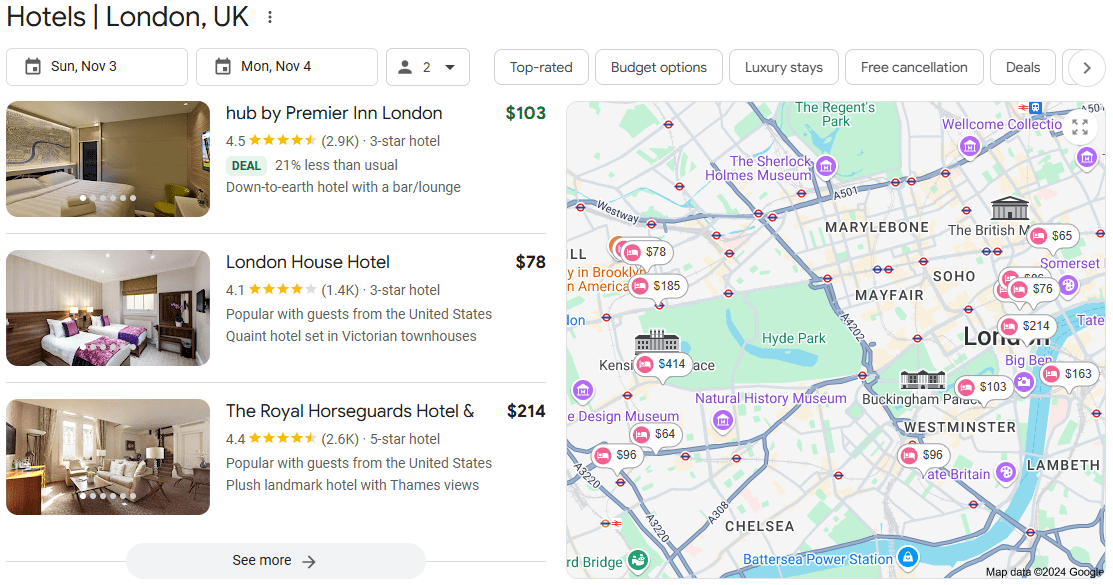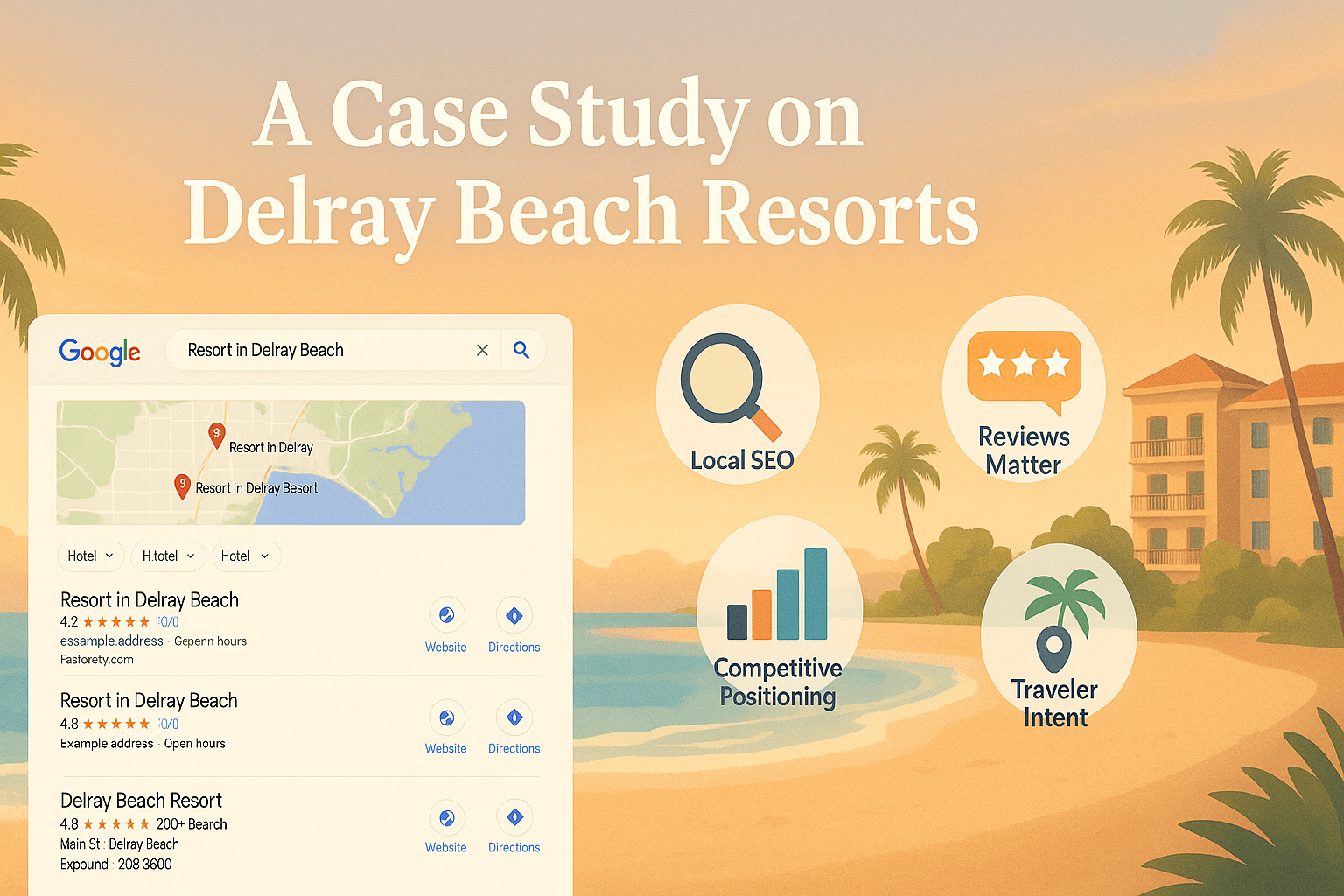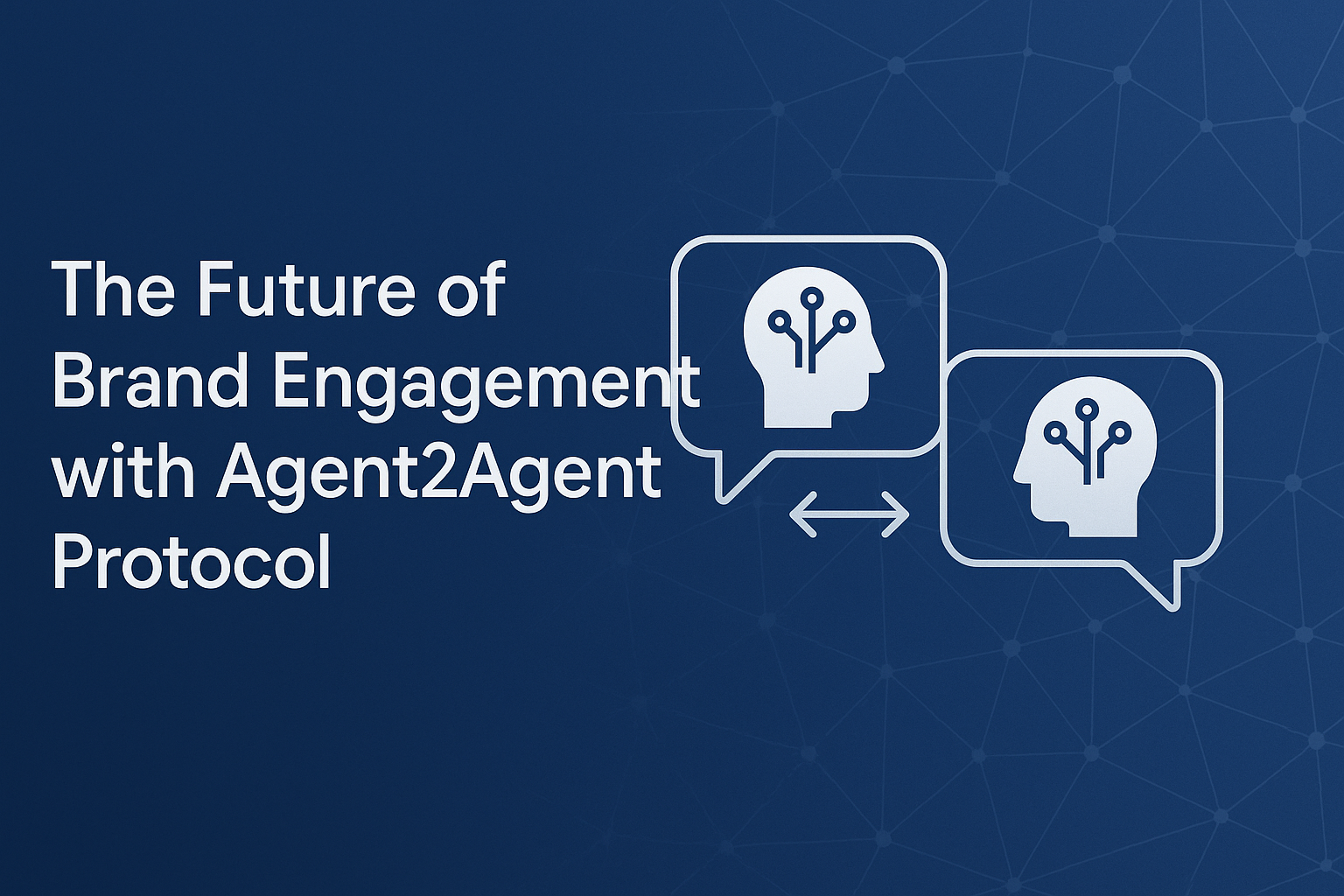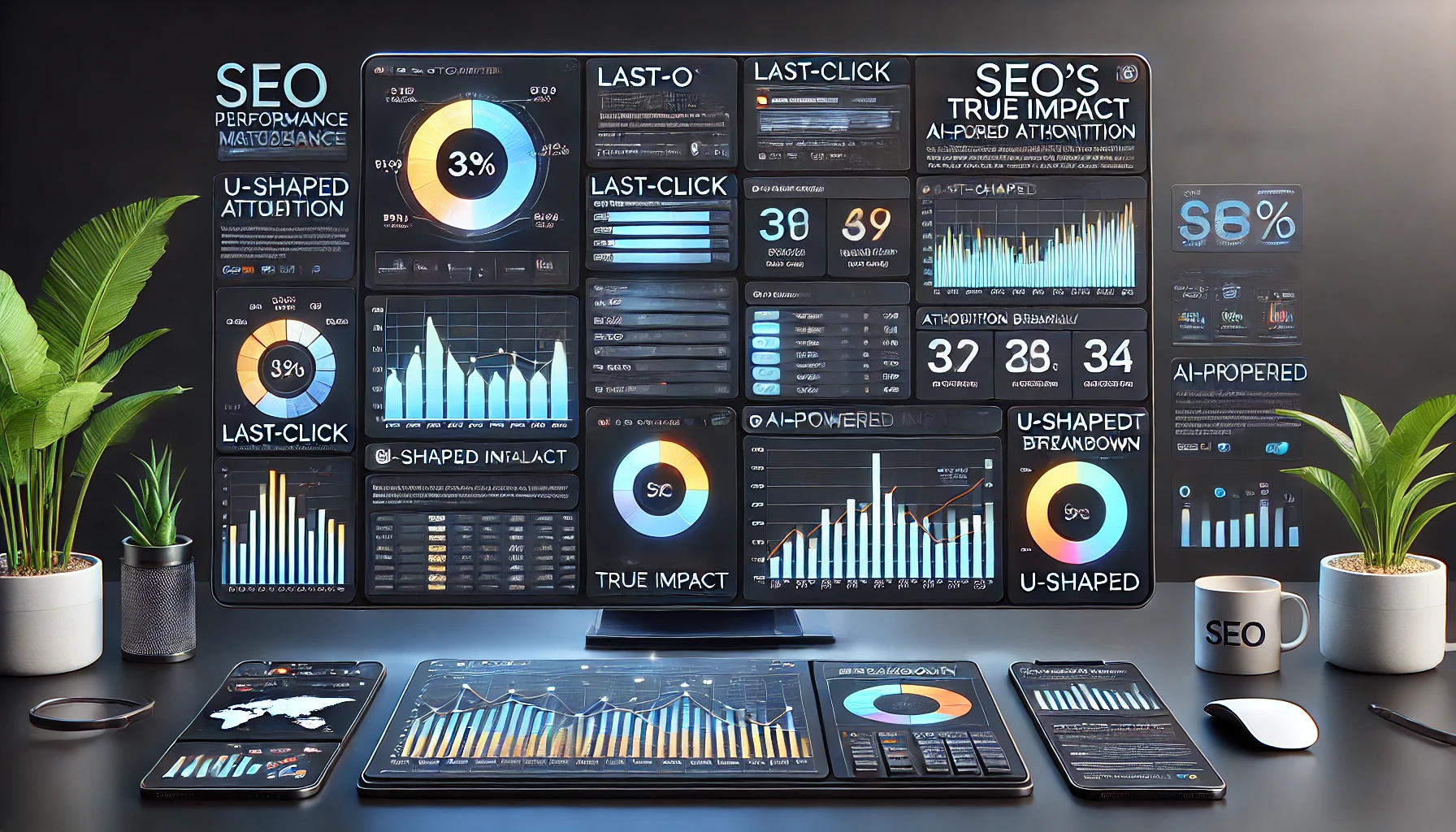-

When it comes to understanding the importance of SEO for hotels and resorts, look no further than the industry data. Nearly two-thirds of total hotel chain revenue is booked online, and organic search currently accounts for approximately 32.8% of revenue for hotels. This data underscores the importance of organic search visibility and why you should seriously consider focusing on SEO. By implementing a comprehensive SEO strategy, you can transform your hotel’s online presence and drive substantial revenue growth that can pay dividends for years to come. What is Hotel SEO and Why Does It Matter? Hotel SEO (Search Engine Optimization)
-

Master Your Online Visibility: The Power of Search Results Analysis As a digital marketing veteran with over a decade in the travel industry, I’ve transformed countless resorts’ online visibility. Today, I’m pulling back the curtain on a real-world search results analysis – using “resort in Delray Beach” as our case study – and showing you
-

When Google unveiled the Agent2Agent (A2A) protocol at Google Cloud Next ’25 at the beginning of April, they didn’t just introduce another API or technical standard – they fundamentally changed how brands will engage with their customers in the digital era. What makes this announcement so significant? For the first time, we have an open
-

When I first started in SEO over a decade ago, our playbook was straightforward: keyword research, on-page optimization, link building, repeat. Fast forward to 2025, and the game has fundamentally changed. Search queries with conversational elements are on the rise, dramatically altering how we approach optimization. It’s remarkable to think about how voice search was
-

Traditional SEO metrics like keyword rankings and basic traffic analytics no longer tell the complete story amidst today’s challenges of privacy-first tracking and fragmented cross-device journeys. Modern SEO demands a sophisticated, multi-dimensional measurement approach that incorporates advanced attribution modeling, user behavior analysis, predictive analytics, and business impact assessment. 1. Stop Letting Last-Click Rob Your SEO
-

I’ve guided numerous organizations through successful CMS migrations. While each migration is unique, certain challenges consistently emerge that can impact your SEO performance. In this guide, I’ll share practical insights from recent migrations to help you navigate your own platform transition successfully. Planning Your CMS Migration Strategy I’ve learned one truth the hard way when
-

The way people discover information online is undergoing a fundamental shift. A mid-2024 survey showed that roughly 31% of Gen Z internet users consider ChatGPT and other AI tools in their top 3 methods of searching for information. As an SEO professional, I’ve seen this shift firsthand while helping a 60-year-old non-profit modernize their digital
-

In the cutthroat arena of hospitality, where every click could mean a booking worth thousands, hotels are constantly wrestling with one burning question: Is SEO really worth the investment? As digital landscapes evolve and travelers increasingly turn to search engines as their virtual concierge, the answer isn’t just a simple yes or no, it’s a
-

Want to know the biggest mistake I see in B2B SEO? Trying to rank for everything. I’ve discovered that the foundation of any successful B2B SEO campaign isn’t about keywords or technical optimizations, it’s about truly understanding your product’s role in your customer’s business. When you deeply grasp why a CFO stays awake at night
-

In my role as an SEO consultant at Catalyst, a Global Nonprofit Supporting Diversity and Inclusion in the Workplace, I’ve witnessed how organizational values have become the cornerstone of effective digital strategy. Whether it’s sustainability, innovation, diversity, or social responsibility, these core principles are no longer just statements on an ‘About Us’ page – they’re
